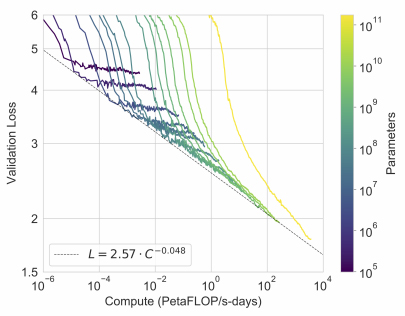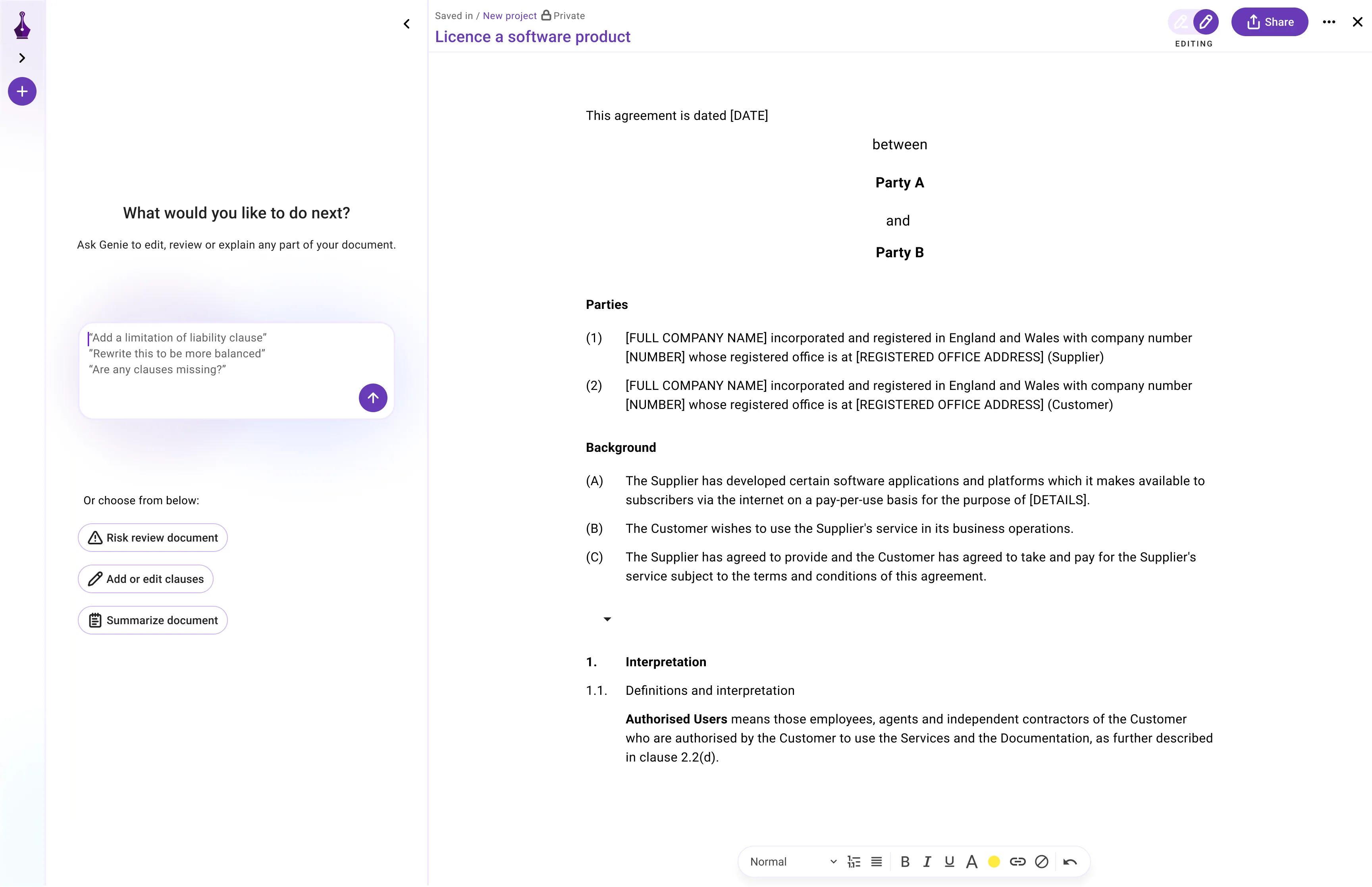
Note: Click here if you're looking for the GPT Genies blog
Above image shows the training and performance curve for GPT-3.
The article below, minus the bold italic text, is written entirely by GPT-3.
Machine learning for NLP / text has come a long way in recent years. GPT-3 is a transformer-based language model released by OpenAI with 750bn parameters.
What does this mean for lawyers? Legalese can be more accurately generated than ever, as well as predicting legal insights, which you'll be able to see in Genie Docs, our intelligent legal documents over time.
As with all machine learning, we are mindful of the ethical implications - machine learning predictions reflect the biases in input data. Furthermore, Our vision is to use models like GPT-3 to assist (not replace) lawyers, founders and business people to draft with trust and transparency in their documents.
This is a first of a 3-part series on GPT-3. If you don't want to miss the next parts, subscribe to our updates here.
We want to use technology to build a better and well-informed future, not just fuel hype. Having said that, here's a hyp-y blog post where GPT-3 criticises the hype in legaltech. Meta, anyone?
Demo video
Here's a short video showing a re-run of the last paragraph in this blog post. GPT-3 has some interesting thoughts on pricing!
GPT-3 generated blog about legaltech
The legaltech industry is in the process of transforming the way we interact with the legal system, and the growth and evolution of the legaltech market has been remarkable. The current growth is exciting and makes for a very exciting future.
The current state of legaltech is strong and getting stronger. As more and more companies continue to explore and develop legaltech tools and solutions, the more we’ll see these solutions come to fruition and have a lasting impact on the industry.
The biggest problem for the legaltech industry is that it has not really produced anything of use to society, or at least not anything of real value. The tech sector is full of stories of big failures, which can be explained by the excessive amount of funding that has been poured into it.
The legaltech sector is not really different. It is full of hype, with stories of billion dollar valuations for companies that have not yet made a cent in profit. It is now even possible to find companies in the sector that have not even launched yet.
While many people are concerned about the legaltech industry, few are willing to talk about it publicly. This is because the industry is heavily reliant on hype and advertising. In many cases, the legaltech industry has been built on little more than a couple of big names, with little substance behind them.
The result is that the industry is highly susceptible to collapse. If the funding dries up, the entire sector will be in serious trouble. This is especially the case if the hype comes to an end.
One problem is that the legaltech industry is dominated by entrepreneurs who have little understanding of the legal sector. This is a problem because the legal sector is one of the most difficult sectors in which to operate.
The legaltech industry is difficult to operate in because there are so many stakeholders involved. The market is very dynamic and it is easy to get overwhelmed by the myriad of products and services that are offered. While there are plenty of legal tech companies that offer cutting edge technology, there are very few that can help you navigate the legal tech industry and be successful.
The one hope for the legaltech industry would be that if you, the lawyer, are no longer relevant, there is always the judge. They have a life-tenured job and can’t be fired. If the industry can get enough AI and other technologies to make you obsolete, then the judge is still needed. So, the industry may still have a future in lobbying to keep judges.
To stop the hype in legaltech, and so that companies can actually start making money, legaltech companies should focus on automating tedious, mundane tasks that lawyers don’t want to do. Legaltech companies should do things that lawyers don’t want to do, and that they will pay for. This will be the only way to get the law firm business, and the only way to generate real, long-term, profitable growth.
--
Thank you for reading, If you're a founder or lawyer and need help drafting legal docs, request your invite to the Genie Community via our homepage: www.genieai.co.
.png)


.png)



